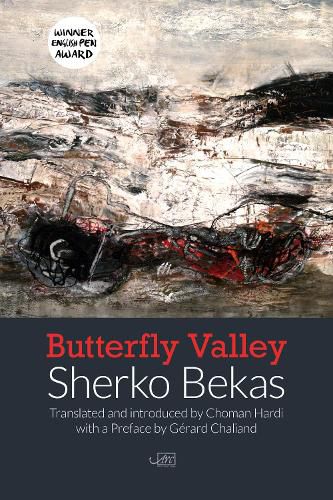Readings Newsletter
Become a Readings Member to make your shopping experience even easier.
Sign in or sign up for free!
You’re not far away from qualifying for FREE standard shipping within Australia
You’ve qualified for FREE standard shipping within Australia
The cart is loading…






This title is printed to order. This book may have been self-published. If so, we cannot guarantee the quality of the content. In the main most books will have gone through the editing process however some may not. We therefore suggest that you be aware of this before ordering this book. If in doubt check either the author or publisher’s details as we are unable to accept any returns unless they are faulty. Please contact us if you have any questions.
The late 1980s witnessed two devastating chemical attacks by the Saddam regime on Iraqi Kurdistan. The first of these, in 1988, known as the Anfal campaign, saw the destruction of 3000 Kurdish villages, over 40 chemical attacks launched, and 100,000 civilians buried in mass graces, with hundreds more dying of exposure to chemical weapons. The second attack was on the town of Halabja where over 5000 people died instantly. Thousands of people who had survived the attacks in both Anfal and Halabja but had been mildly affected by the gas later died from cancer and other diseases.
Butterfly Valley is Sherko Bekes’ response to these atrocities. Stunned by the world’s silence in the face of this genocide, Bekes - in exile in Sweden at the time - longs to go home and mourn the victims. He laments the repetitive cycles of continuous oppression and suppressed revolutions in Kurdish history, and in his despair speaks to other exiled Kurdish poets (Nali, Hani and Mawlawi among them) from the sixteenth century to the present day. This long poem unfolds in beautifully-drawn images of the poet’s homeland - mountains and forests, rivers and villages, meadows and flowers - which are juxtaposed with scenes of death, destruction and suffering. This is an immensely powerful poem, at once lyrical and heart-rending, and Choman Hardi’s fine translation at last gives the English-speaking reader the most extensive example yet of his outstanding writing.
$9.00 standard shipping within Australia
FREE standard shipping within Australia for orders over $100.00
Express & International shipping calculated at checkout
This title is printed to order. This book may have been self-published. If so, we cannot guarantee the quality of the content. In the main most books will have gone through the editing process however some may not. We therefore suggest that you be aware of this before ordering this book. If in doubt check either the author or publisher’s details as we are unable to accept any returns unless they are faulty. Please contact us if you have any questions.
The late 1980s witnessed two devastating chemical attacks by the Saddam regime on Iraqi Kurdistan. The first of these, in 1988, known as the Anfal campaign, saw the destruction of 3000 Kurdish villages, over 40 chemical attacks launched, and 100,000 civilians buried in mass graces, with hundreds more dying of exposure to chemical weapons. The second attack was on the town of Halabja where over 5000 people died instantly. Thousands of people who had survived the attacks in both Anfal and Halabja but had been mildly affected by the gas later died from cancer and other diseases.
Butterfly Valley is Sherko Bekes’ response to these atrocities. Stunned by the world’s silence in the face of this genocide, Bekes - in exile in Sweden at the time - longs to go home and mourn the victims. He laments the repetitive cycles of continuous oppression and suppressed revolutions in Kurdish history, and in his despair speaks to other exiled Kurdish poets (Nali, Hani and Mawlawi among them) from the sixteenth century to the present day. This long poem unfolds in beautifully-drawn images of the poet’s homeland - mountains and forests, rivers and villages, meadows and flowers - which are juxtaposed with scenes of death, destruction and suffering. This is an immensely powerful poem, at once lyrical and heart-rending, and Choman Hardi’s fine translation at last gives the English-speaking reader the most extensive example yet of his outstanding writing.